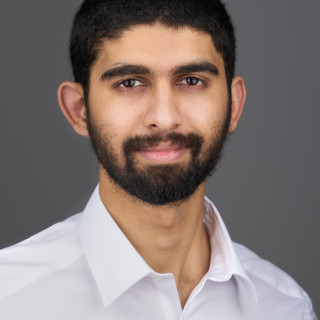“Let food be thy medicine and let medicine be thy food.” —Hippocrates
I have a bad habit of falling into internet rabbit holes every so often. Though often leading to wasteful time sinks, they can occasionally be fruitful — literally.
During my nutrition module last spring, I was digging into the weeds of my favorite foods. I love berries and eat them almost every day, as they are rich in antioxidants. And when I came across a review article actually correlating berry consumption with a reduction in oxidative stress, I was intrigued.
I realized that throughout the preclinical phase of medical school, we learn a lot about biochemical processes — inflammation, neoplasia, DNA repair, etc. — in disease pathophysiology and medication mechanisms of action, but we rarely learn about whole foods in relation to those processes.
Even though poor diet was found to be the leading cause of death from chronic disease in the U.S. (even more so than tobacco or alcohol use), the amount of time dedicated to nutrition training in medical school remains minimal. And the majority of schools do not have a requirement at all.
When we do learn about nutrition, it is generally when the topic cannot otherwise be avoided, e.g. low salt diets for hypertension management and low refined carbohydrate intake for diabetes. It becomes just another checkbox, almost an afterthought, amid an unfortunate reality in which high-yield content for our patients is low-yield on board exams.
In my view, medical school curricula do not just lack dedicated instructional time on nutrition, but they lack integration of nutrition with the basic sciences. For example, we know from cell biology that cholesterol is largely found in the membranes of animal cells (and only sparsely in plants), but we may not readily make the connection that dietary cholesterol is mostly found in animal products. We learn about cytokine promoters such as IGF-1 in the abstract but not the role of meat and dairy in increasing IGF-1 levels.
One approach for curriculum reform, then, would be to teach the types of foods that both contribute to and prevent diseases, in the context of the same rich foundational sciences we are already learning. In his book “How Not To Die,” Dr. Michael Greger meticulously details the links between diet and the progression and regression of chronic illnesses, ultimately making the case for a mostly whole-food plant-based diet.
A few weeks ago, I attended a skills workshop on the abdominal physical exam. While constructing a differential diagnosis, our preceptor threw us a clinical pearl: Diets high in animal protein and low in fiber contribute to the risk of developing diverticular disease. I began zoning out and thought: Why should diet as a risk factor for a host of diseases be treated any differently than smoking as a risk factor for lung disease or alcohol as a risk factor for liver disease?
Throughout my longitudinal clinical skills course, we have been trained extensively in taking a thorough social history, and I feel confident in extracting necessary details and asking relevant follow-up questions on home life, employment, sexual activity, and recreational drug usage. We have also done simulations in which we counsel standardized patients on alcohol or smoking cessation using motivational interviewing. Yet it astounded me to learn that most physicians are not trained to pursue similar tactics regarding diet, limited to generic guidance about portion size, lean meat choices, and more fruits and vegetables.
My preceptor offered that nutritional counseling is highly underutilized likely due to time constraints and difficulty in establishing rapport with patients. Though modest reforms in reimbursement parity for primary care settings have been made, the U.S. health care system still greatly prioritizes procedures over prevention.
Fortunately, recent changes in medical education create an avenue for integrated nutrition training. Although nutrition is not very useful for the boards, the upcoming change to a pass/fail scoring system for USMLE Step 1 could allow medical schools to devote more time to preventive medicine. Also, the elimination of USMLE Step 2 CS allows medical schools more flexibility in designing standardized patient encounters, some of which could include nutrition counseling.
Though nutritional approaches to health are highly contested (and may remain so due to the thorny ethics of performing large-scale randomized controlled trials with atherogenic diets), lack of consensus is not an excuse to throw our hands up and call it a wash. While it may be true in a strict sense that “no one diet works for everyone,” it may be time to retire that vague phrase. After all, we would never say to our patients “there is no one-sized-fits-all approach to how much alcohol or tobacco you should consume.” We owe it to them to do our homework and offer specific guidelines.
Medical schools have an important role to play in addressing the mass morbidity and mortality stemming from the standard American diet. Something so integral to our health should be just as integral to our medical education, and in turn, integral to the health and well-being of our patients.
Should clinicians be more informed on nutrition? Why or why not? Share your thoughts in the comment section.
Rishab Chawla is a second-year student at the Medical College of Georgia, class of 2024. He is a south delegate for students for a National Health Program and member of the AMA Medical Student Section. His views are his own and do not represent those of his institution or organizational affiliations.
Illustration by Jennifer Bogartz






